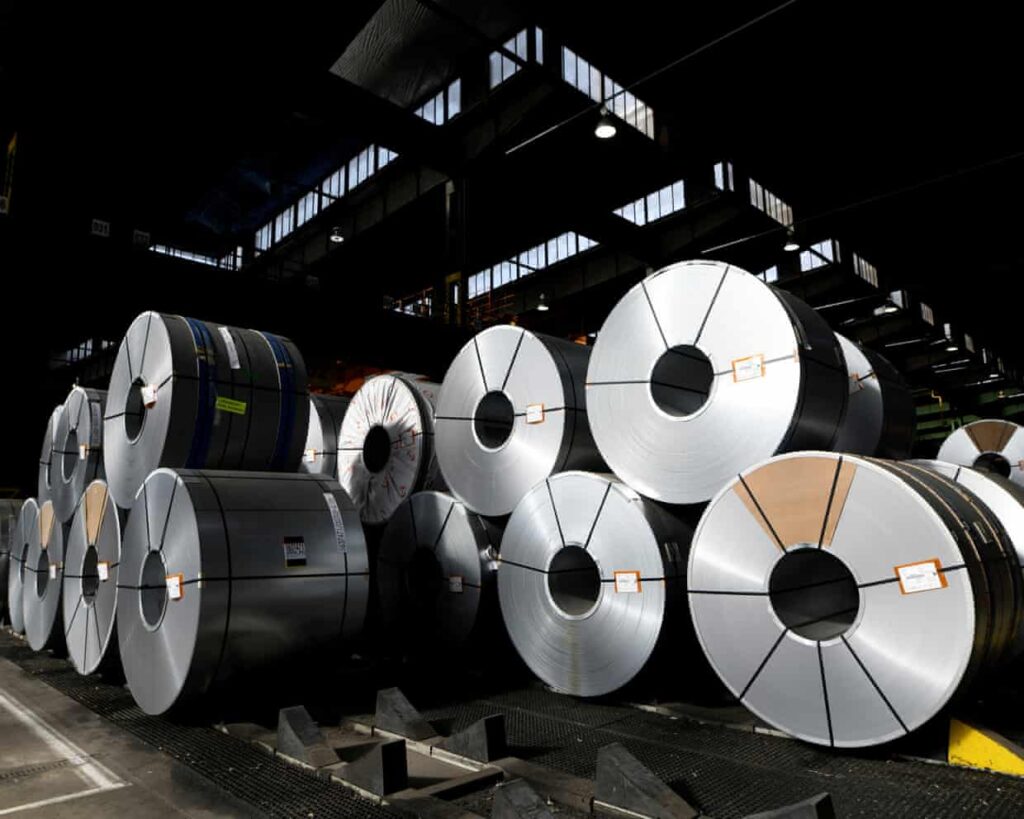
Businesses globally are preparing for a potential new wave of tariffs under the administration of Donald Trump. This latest initiative could significantly impact a range of products, including bicycles and baking trays, as American companies push for additional tariffs on imported goods containing steel. The US Department of Commerce has received requests from various businesses to add approximately 700 items to an existing list of 407 products already facing heightened tariffs due to their steel content.
These developments are raising concerns across Europe, where industry leaders fear the implications of a growing list of “steel derivatives” subject to new tariffs. Items previously exempt from tariffs may now incur additional levies based on their steel components, further complicating trade agreements. The UK has established a baseline tariff of 10% on all goods, with a 25% tariff specifically for steel. Meanwhile, the European Union has agreed to similar rates of 25% and 50%, respectively.
Impacts on Exporters and Industry Concerns
Exporters are voicing their concerns that these new derivative tariffs undermine the existing agreements. The tariffs could impose a higher rate on the steel content of many goods, in addition to the baseline rate applied to the entire product. The latest requests for tariff adjustments must be submitted by October 21, 2023, marking the second consultation period in just three months.
Companies like Guardian Bikes from Indiana have formally requested inclusion on the new tariff list, arguing that the US bike industry is on the brink of collapse due to overwhelming competition from imported bicycles. In a letter to Howard Lutnick, Secretary of Commerce, the company highlighted the importation of 11 million bicycles in 2024, largely sourced from China. Should their request be approved, the tariffs would apply globally, impacting even high-performance bike brands from countries such as the UK and Italy.
Similarly, Red Gold, a tomato-canning company sourcing from farms in Indiana, Ohio, and Michigan, expressed its challenges regarding tariffs on imported tinplate steel. In their communication to the Commerce Department, they noted that while they face a 25% tariff on tinplate from the UK and a staggering 50% on steel from other countries, foreign competitors selling finished products encounter no comparable tariffs. This discrepancy has prompted Red Gold to advocate for a steel derivative levy for their sector.
Wider Industry Participation
Additionally, kitchenware manufacturers American Pan and Chicago Metallic have joined the list of businesses appealing for inclusion in the tariff discussions. They argue that the influx of low-cost commercial cookware from China has placed them at a significant disadvantage, advocating for protective measures against what they describe as unfair competition.
According to George Riddell, a senior adviser at the advisory firm Flint Global, the current requests reinforce fears within Europe regarding the US’s expanding tariff policies. He pointed out that the US has adopted a broad approach to accepting new requests, with previous consultations showing a nearly 100% approval rate. Riddell emphasized that this trend raises concerns about the stability of trade relations with the UK and the EU, despite existing agreements.
The decision regarding which products will be subject to the new tariffs is expected to be announced in December, approximately 60 days after the deadline for submissions. As companies brace for the impact of these potential changes, the global trade landscape remains uncertain, with many stakeholders closely monitoring developments.






